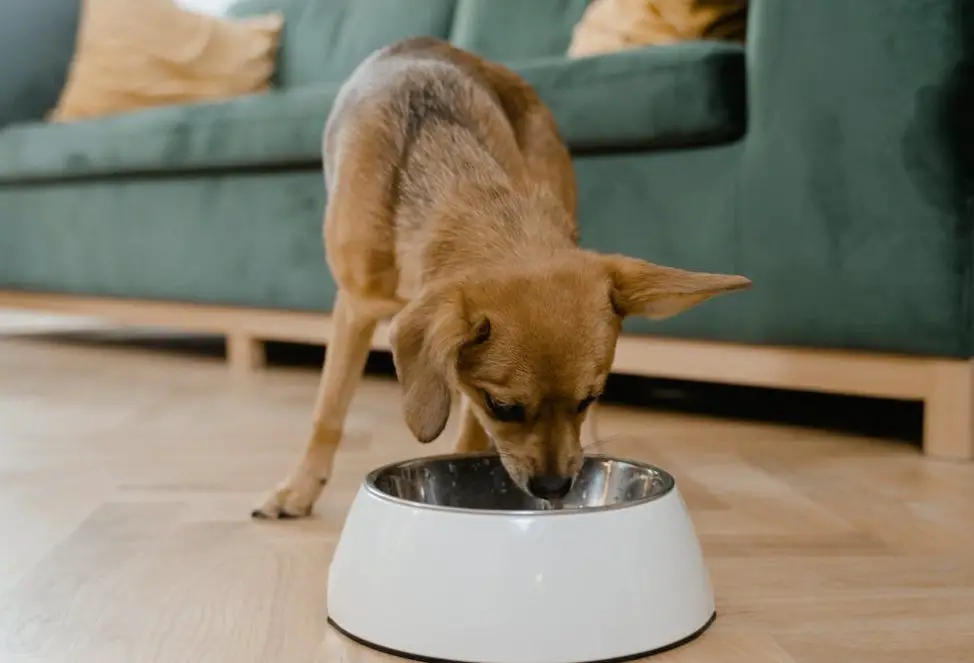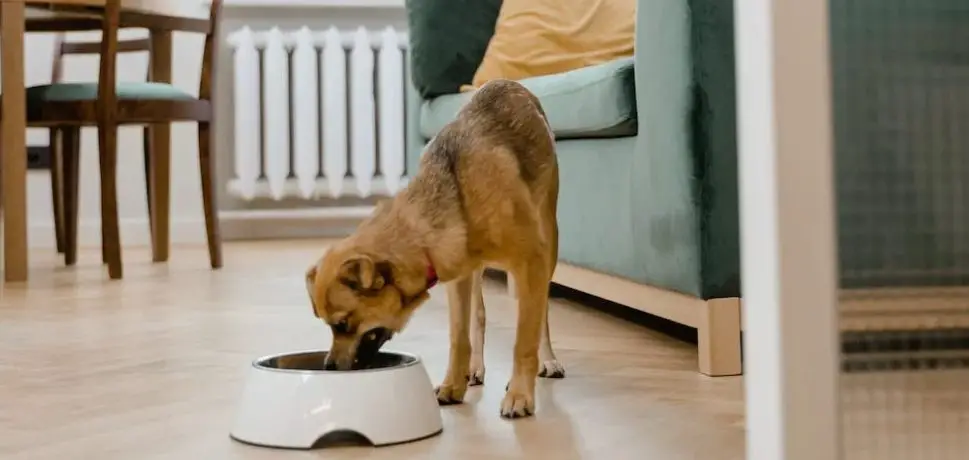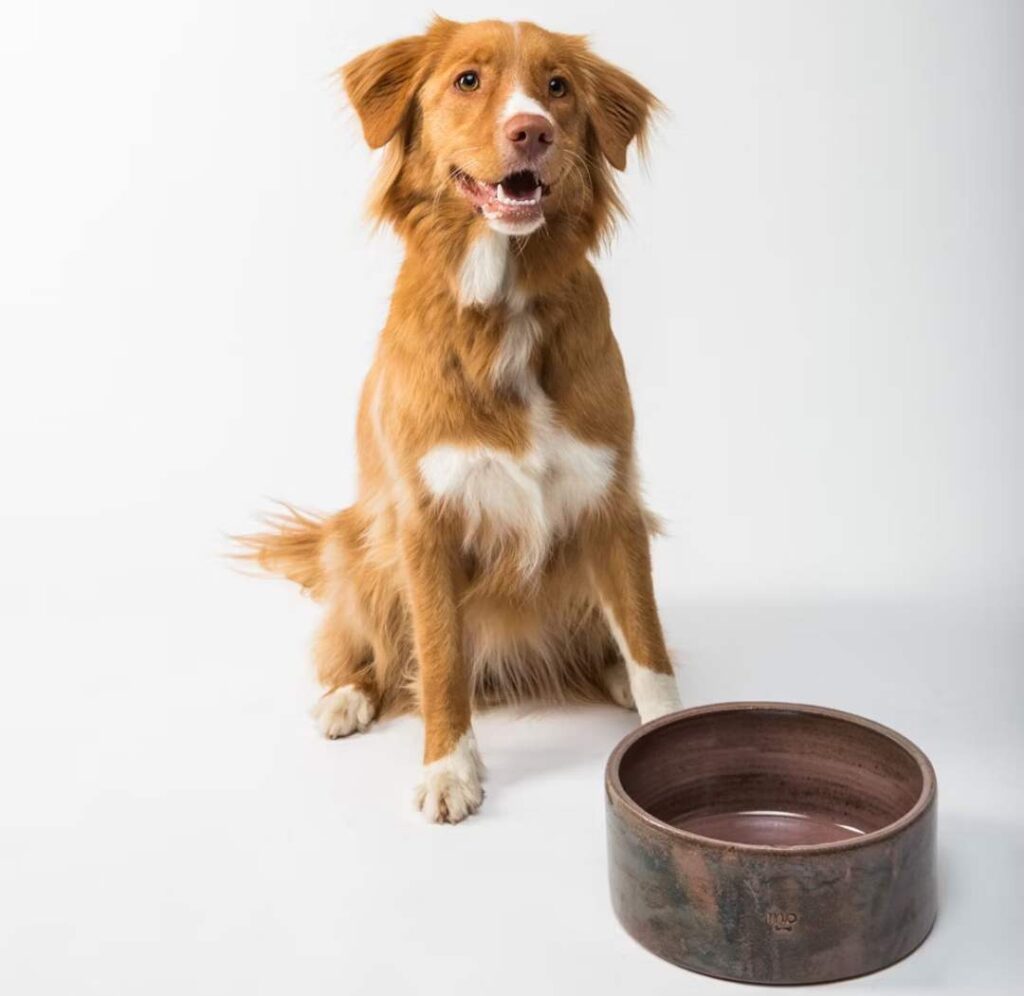Understanding The Best Times to Feed Your Dog

Are you wondering about the best times to feed your furry friend? Well, look no further!
In this quick and informative blog post, we’ll dive into the ideal feeding schedule for your dog, ensuring their health and happiness.
Let’s get started and make mealtime a breeze for both you and your adorable pooch!
Best Times to Feed Your Dog
Feeding your furry friend at the right times is crucial for their health and well-being.
The best times to feed your dog are in the morning (between 6.00 a.m. to 8.00 a.m. in the mornings) and evening (between 5.00 p.m. to 7.00 p.m. in the evenings), aligning with their natural feeding patterns.
A morning feeding provides energy for the day ahead, while an evening meal helps them settle down for the night.
It’s recommended to feed adult dogs twice a day to maintain a consistent schedule.
Avoid feeding your dog immediately before or after exercise to prevent digestive issues.
Remember to space out meals evenly throughout the day to keep your pup satisfied.
Always consult with your veterinarian for personalized feeding recommendations based on your dog’s breed, age, and activity level.
By following these guidelines, you can ensure your dog stays happy and healthy!
Best Times to Feed Your Puppy

Here are the four best times to feed your puppy along with recommended hours:
1. Breakfast (Morning Meal): The first meal of the day is typically referred to as breakfast. It’s important to feed your puppy in the morning to provide them with the energy they need for the day ahead. According to experts, the recommended time for breakfast is around 7:00 a.m. Make sure to choose a high-quality puppy food that is specifically formulated to meet their nutritional needs.
2. Mid-Day Meal: The mid-day meal is an important feeding time for your puppy, especially if there is a long gap between breakfast and dinner. This meal helps to sustain their energy levels throughout the day. The recommended time for the mid-day meal is around 12:00 p.m. Remember to feed your puppy an appropriate portion size based on their age and size.
3. Evening Snack: An evening snack can be a great way to provide your puppy with a small meal before bedtime. This can help prevent hunger during the night and promote a good night’s sleep. The recommended time for the evening snack is around 4:30 p.m. Choose a nutritious snack that is suitable for puppies and avoid giving them any table scraps or unhealthy treats.
4. Dinner (Evening Meal): The final meal of the day is dinner, which should be given a few hours before bedtime. This allows your puppy enough time to digest their food before settling down for the night. The recommended time for dinner is around 7:00 p.m. Ensure that you provide your puppy with a balanced and age-appropriate meal to support their growth and development.
It’s important to note that the number of meals per day and the feeding schedule may vary depending on your puppy’s age and breed.
Younger puppies may require more frequent meals, while older puppies can transition to fewer meals per day.
Best Times to Feed Your Adult Dog

While individual dogs may have unique needs, there are two popular times in a day that are generally recommended for feeding: morning and evening.
Let’s delve into these times and explore the recommended hours for each.
1. Morning Feeding: Mornings are a great time to kick-start your dog’s day with a nutritious meal. Just like us, dogs can benefit from having breakfast to provide them with energy and nutrients to tackle the day ahead.
Ideally, you should aim to feed your adult dog in the morning, shortly after you wake up. This can vary depending on your own schedule, but a recommended timeframe would be between 6:00 a.m. and 8:00 a.m.
Feeding your dog in the morning has a few advantages. Firstly, it helps establish a routine and gives them something to look forward to when they wake up.
Secondly, it allows them to digest their food throughout the day and have the energy to engage in activities.
Lastly, it can prevent hunger-induced behavior problems, as a satisfied pup is generally a happier and more well-behaved one.
2. Evening Feeding: The evening meal is the other important feeding time for your adult dog. This meal serves as a way to wrap up the day and provide them with the necessary nourishment before bedtime.
The recommended timeframe for the evening meal is typically between 5:00 p.m. and 7:00 p.m.
Feeding your dog in the evening has its own benefits. Firstly, it allows your dog to have a satisfied belly before bedtime, which can promote better sleep and overall relaxation.
Secondly, it gives them an opportunity to burn off some energy before their meal, as they may have been active throughout the day.
Lastly, it can help prevent late-night hunger pangs, which could otherwise disturb their sleep or lead to unwanted attention-seeking behavior.
Remember, these recommended feeding times are just guidelines, and you should adjust them based on your dog’s specific needs, your daily schedule, and any advice from your veterinarian.
Factors that influence when to feed your dog

There are several factors to consider when determining the best feeding schedule for your furry friend.
Let’s explore some of the major factors that influence when to feed your dog:
1. Age and Life Stage: The age and life stage of your dog play a significant role in determining their feeding schedule. Puppies, for example, have different nutritional needs compared to adult dogs. They require more frequent meals throughout the day to support their growth and development.
As puppies mature, their feeding schedule can gradually transition to fewer meals per day. Adult dogs typically thrive on a regular feeding schedule of one to two meals per day. Senior dogs may have specific dietary requirements, and their feeding schedule may need to be adjusted accordingly.
2. Breed and Size: Different dog breeds and sizes have varying metabolic rates and nutritional needs. Smaller breeds tend to have faster metabolisms and may require more frequent meals to maintain their energy levels.
Larger breeds, on the other hand, may benefit from fewer meals to prevent issues like bloat. It’s important to consult with your veterinarian to determine the appropriate feeding schedule based on your dog’s breed and size.
3. Activity Level: The activity level of your dog is another crucial factor to consider. Dogs with high energy levels and active lifestyles may require more frequent meals to sustain their energy throughout the day.
Conversely, less active dogs may need fewer meals to prevent weight gain. Adjusting the feeding schedule based on your dog’s activity level can help ensure they receive the right amount of nutrition without overfeeding or underfeeding.
4. Health Conditions: Certain health conditions, such as diabetes or gastrointestinal issues, may require a specific feeding schedule. Dogs with diabetes, for instance, may need to be fed at consistent times throughout the day to help regulate their blood sugar levels.
Dogs with gastrointestinal sensitivities may benefit from smaller, more frequent meals to aid digestion. If your dog has any health conditions, it’s essential to work closely with your veterinarian to develop a feeding schedule that supports their specific needs.
5. Personal Preference: Your personal preference and lifestyle also play a role in determining when to feed your dog. Some dog owners prefer to feed their pets at specific times of the day that align with their own routines.
Others may opt for free-feeding, where food is available to the dog at all times. It’s important to find a feeding schedule that works best for both you and your dog, ensuring consistency and convenience.
Learn more about common human food dogs can eat.
FAQs
What are the best times to feed my dog?
The best times to feed your dog depend on their age, activity level, and personal preferences. In general, it is recommended to divide their daily meals into two feedings, one in the morning and one in the evening.
Should I stick to a strict schedule for feeding my dog?
While it’s beneficial to establish a feeding routine, it’s also important to be flexible. Dogs, like humans, have different appetites and may not always be hungry at the exact same time every day. As long as you’re consistent with the number of meals and portion sizes, a slight variation in feeding times is usually fine.
Can I feed my dog right before bedtime?
It’s generally recommended to avoid feeding your dog a large meal right before bedtime. This can lead to discomfort or digestive issues, especially if your dog is prone to bloating. Instead, try to feed them at least a couple of hours before they go to sleep.
What if my dog is more active during certain times of the day?
If your dog tends to be more active in the morning or evening, you can adjust their feeding schedule accordingly. For example, if your dog is more active in the morning, consider giving them a slightly larger portion for breakfast and a lighter meal in the evening.
Can I feed my dog treats between meals?
Yes, you can give your dog treats between meals as long as they are healthy and given in moderation. Treats should not make up a significant portion of their daily calorie intake. It’s best to choose treats that are specifically formulated for dogs and avoid human food, which may be harmful to them.
Are there any specific guidelines for puppies and older dogs?
Puppies have smaller stomachs and higher energy needs, so they may require more frequent meals throughout the day. Older dogs, on the other hand, may benefit from smaller, more frequent meals to aid digestion. It’s best to consult with your veterinarian to determine the most suitable feeding schedule for your puppy or senior dog.
Learn more about unsafe human foods dogs can’t eat.
Conclusion
In conclusion, finding the best times to feed your dog is crucial for their health and well-being. Remember to establish a consistent feeding schedule that aligns with your daily routine, offering meals at regular intervals. By prioritizing their nutritional needs and maintaining a structured feeding routine, you’ll keep your furry friend happy, healthy, and always looking forward to mealtime!
